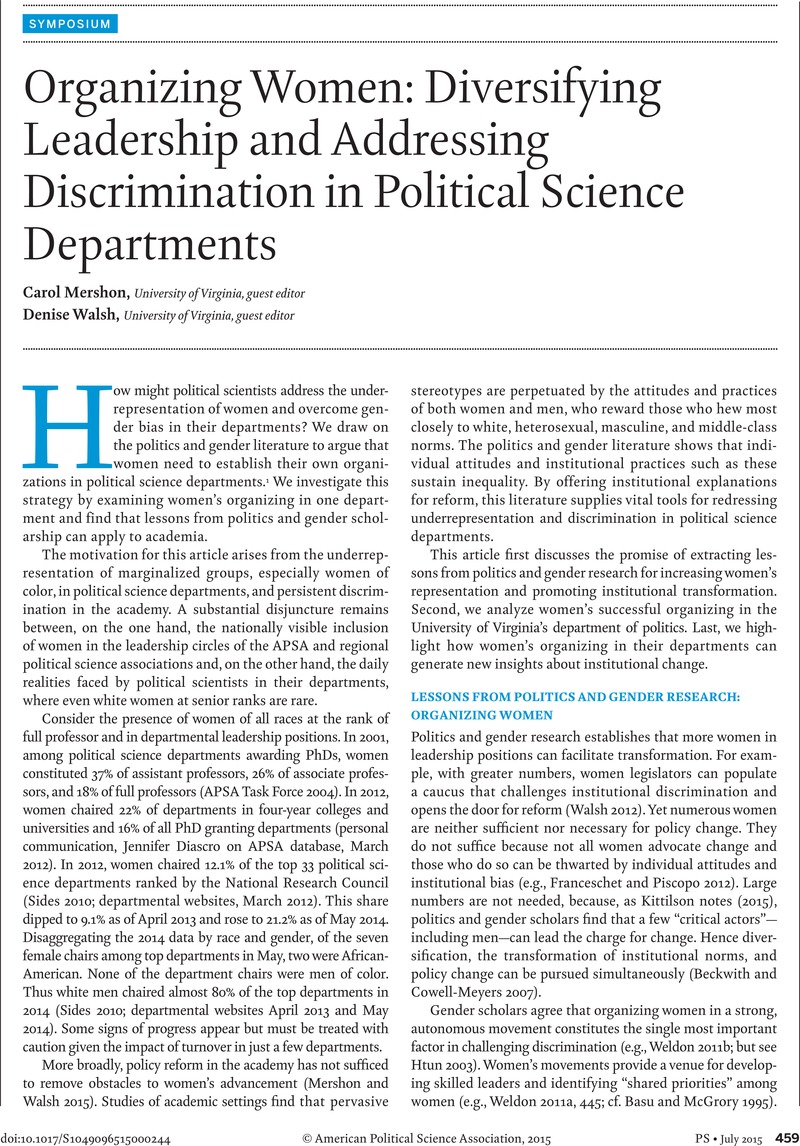Crossref Citations
This article has been cited by the following publications. This list is generated based on data provided by Crossref.
rocha carpiuc, cecilia
2016.
women and diversity in latin american political science.
European Political Science,
Vol. 15,
Issue. 4,
p.
457.
Mershon, Carol
and
Walsh, Denise
2016.
Diversity in political science: why it matters and how to get it.
Politics, Groups, and Identities,
Vol. 4,
Issue. 3,
p.
462.
Pflaeger Young, Zoe
Amery, Fran
Holden Bates, Stephen
McKay, Stephen
Miller, Cherry
Billings, Taylor
Hayton, Rebecca
Holt, Marianne
Khatri, Jasmine
Marvin, Molly
Ogunsanya, Lola
Ramdehal, Alice
and
Sullivan, Rosie
2021.
Women in the Profession: An Update on the Gendered Composition of the Discipline and Political Science Departments in the UK.
Political Studies Review,
Vol. 19,
Issue. 1,
p.
12.





